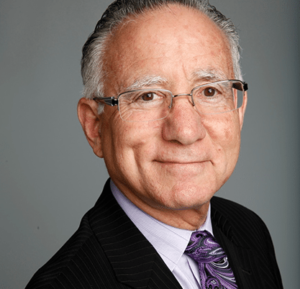By RABBI STEVEN CARR REUBEN, PH.D.
Special to Circling the News
 This year’s Passover celebration will be unlike any we have ever experienced in our lives. As the virus continues to spread across the world and all of us continue to be sequestered in our homes, we have come to realize that while we are practicing physical distance from each other, we are finding ever more meaningful and creative ways to nurture our deep, fundamental need for social connection at the same time.
This year’s Passover celebration will be unlike any we have ever experienced in our lives. As the virus continues to spread across the world and all of us continue to be sequestered in our homes, we have come to realize that while we are practicing physical distance from each other, we are finding ever more meaningful and creative ways to nurture our deep, fundamental need for social connection at the same time.
Jews everywhere will celebrate Passover in a unique way this year with virtual Zoom seders connecting family and friends across the globe to one another so that even in isolation we can fulfill the powerful need to be part of each other’s lives in meaningful ways.
Every year we read the commandment contained in the text of the story of Passover challenging us with these words: b’hol dor vador hayav adam lerot et atzmo k’ilu hu yatzah mi-mitzrayim. “In every generation each of us is to see ourselves as if we personally were freed from the slavery of Egypt.”
The ancient rabbis recognized that our Passover story of liberation from slavery to freedom wasn’t only about a specific place called “Egypt,” but that the Hebrew name for Egypt, Mitzrayim, literally means “a narrow place” as well.
They understood that there are many times and many ways that each of us feels trapped, stuck, confined, limited both by circumstances and by others in our lives and that liberation from these narrow places is a challenge that we face in all of our lives.
This year of Covid-19 more than ever we are literally feeling the walls closing in, the confinement shrinking the circumference of our lives into the limited spaces of our own homes and the restrictions to the freedom of our movement and inability to gather with friends or anyone outside our immediate families.
This year the whole world is longing for redemption from our “narrow places” and we are reminded more powerfully than ever that there is no “us” and “them” in life, but one humanity struggling together for a universal redemption from the same silent pharaoh that would oppress us all.
The night before our liberation from Egypt was called in Hebrew as lail shmurim – the “night of watching” — and that pretty much sums up our lives every day now.
At every Passover Seder we list the ten plagues that God brought upon Egypt that ultimately resulted in our liberation. The 9th plague was the plague of darkness. For some of us, being forced to stay home in an environment with domestic violence is a particularly devastating personal plague of darkness.
A rabbinic midrash on this plague teaches that the ultimate darkness is not simply that the lights go out, but that one person can no longer truly see his or her neighbor with anything other than with fear.
The Gerer Rav taught, “The worst kind of darkness is when people are unable to ‘see’ their neighbors, that is to recognize their distress or suffering and help them.”
Passover comes at a precious, powerful moment to remind us that no matter how dark the night might be, morning always comes.
More than any other religious obligation in our entire Torah, we are commanded to remember. To remember that we were slaves, to remember that we know the heart of the stranger, to remember that we know what it is to be vulnerable, fearful, alone, powerless and that therefore it is our obligation to lift up the fallen, to free every captive and bring healing to those who suffer.
What will we remember when the dawn finally comes? What will we remember when the pandemic is over and we all emerge from our narrow places? This Passover is a reminder that we can take the lessons we are learning about just how interconnected the whole world truly is and perhaps finally join together to create the world envisioned by the Biblical prophet Amos, who said, “Let justice well up as waters and righteousness like a mighty stream.”
(Stephen Carr Reuben is the rabbi emeritus at Kellihat Israel in Pacific Palisades. He is a nationally recognized expert in the field of moral education and is the recipient of numerous community awards, including the Micah Award for founding the largest full-service homeless shelter in Los Angeles. He is also a recipient of the Unsung Hero Award from the Youth Law Center in San Francisco.
Reuben has contributed to a wide variety of publications as an author and composer. He has written numerous books, including Raising Children in a Contemporary World (1992); Raising Ethical Children – Prima Publishing, 1994; Children of Character: Leading Your Children to Ethical Choices in Everyday Life Canter & Associates, 1997; A Non-judgmental Guide to Interfaith Marriage -Xlibris Corporation, 2002; and There’s an Easter Egg on Your Seder Plate: Surviving Your Child’s Interfaith Marriage – Praeger Publishers, 2008. )

WONDERFUL! M